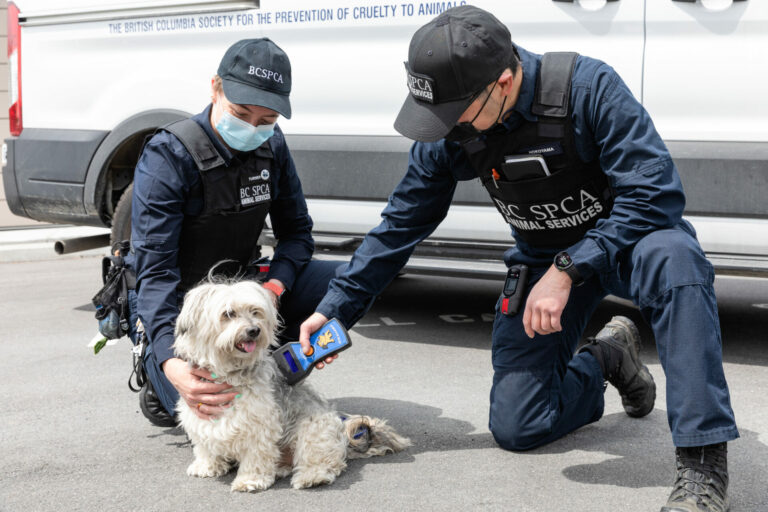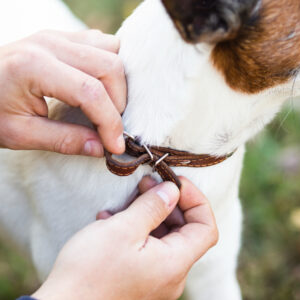Losing a pet is heartbreaking, and in the rush to find them, many pet owners turn to popular but outdated methods—posting flyers, leaving out food, and assuming their pet will return on their own. But do these strategies actually work?
In this blog, we’ll separate fact from fiction, debunk the most common lost pet recovery myths, and explain why a registered microchip is the most effective tool for bringing a lost pet home safely.
Table of Contents
1. Myth: "Pets Always Find Their Way Home on Their Own"

Fact: Most Lost Pets Need Help to Be Found
Many pet owners believe their pet will instinctively find their way home, especially if they are familiar with the area.
In reality, most lost pets do not return on their own. Instead, they:
- Get scared and hide in unfamiliar places.
- Wander too far and become disoriented.
- Are picked up by a well-meaning stranger who assumes they are a stray and takes them to a shelter.
How to Increase the Chances of Reunification
- Start searching immediately—don’t assume your pet will come back on their own.
- Notify BC Pet Registry so shelters and vets can contact you if your pet is found.
- Check shelters regularly—many pets are turned in within 24-48 hours of going missing.
Tip: Always keep your pet’s microchip details up to date. Check or update your registration here.
2. Myth: "Collars and ID Tags Are Enough"

Fact: Collars and Tags Can Be Lost or Removed
Collars and ID tags are great first-line identification tools, but they are not foolproof. Pets can lose their collars by:
- Getting caught on fences or bushes.
- Slipping out of them if they are loose.
- Having them removed by someone either mistakenly or purposefully.
Why Microchipping Is More Reliable
A microchip is a permanent form of identification that cannot be lost or removed. Even if a pet loses their collar, a shelter or veterinarian can scan the microchip and access the owner’s contact details—as long as the chip is registered.
Key Takeaway: Use a microchip and a collar together for the best chance of getting your pet home safely.
Be a Part of the 80% Responsible Owners
During our recent events, we scanned hundreds of pets, all with microchips implanted. Only to discover that approximately 20% of the pets’ microchips are not linked to any registries in North America. We recommend all pet owners to double check their pet’s registration and directly registering with us. All you need is the microchip number and/or tattoo code to start the online registration process. For a small, one-time fee of $45, your pet will be protected for a lifetime and you will also have contributed to the life-saving work of the BC SPCA.
3. Myth: "Posting Flyers Is the Best Way to Find a Lost Pet"
Fact: Flyers Help, but Digital Tools Are More Effective
Flyers can help in small neighborhoods, but relying only on paper notices has its drawbacks. Flyers:
- Only reach a small local audience.
- Can be removed, damaged, or ignored.
- May not be seen by the right people in time.
Better Strategies for Finding a Lost Pet
- Social Media Alerts: Lost pet Facebook groups, community pages, and Nextdoor are faster and more effective.
- Lost Pet Registries: Shelters and veterinary clinics check national pet registries first, so make sure your pet’s microchip is registered with BC Pet Registry.
- Visit Local Shelters: Many pets are brought to shelters within the first few days of going missing.
Best Approach: Use flyers as one tool in a larger strategy, but prioritize online alerts and microchip registration for the fastest results.
4. Myth: "Leaving Out Food Will Lure Your Pet Home"

Fact: It’s More Likely to Attract Other Animals
Some owners believe that leaving food outside will help their lost pet find their way home. While this can work in rare cases, it mostly attracts other animals, such as:
- Stray cats or dogs, which could scare your pet away.
- Wild animals like raccoons, skunks, or coyotes.
A Better Approach
- Place a familiar-scented item outside—like your t-shirt, a blanket, bed, or their favorite toy.
- Search at dawn or dusk, as lost pets are more likely to come out when it’s quiet.
- Alert neighbors and shelters so they can help keep an eye out.
Pro Tip: The best way to ensure a safe return is through microchip registration and shelter reporting, not leaving food outside.
5. Lost Pet FAQs
Q: How do I know if my pet’s microchip is registered?
A: Reach out to your vet or to the BC Pet Registry at info@bcpetregistry.ca to check your pet’s microchip status.
Q: How long do shelters keep lost pets?
A: Shelters typically hold lost pets for 3 to 7 days before they become eligible for adoption.
Q: Should I use a collar and ID tag even if my pet is microchipped?
A: Yes! Collars and ID tags allow anyone who finds your pet to contact you immediately.
Q: Is microchipping painful for pets?
A: No, microchipping is a quick and minimally invasive procedure, similar to a routine vaccination.
Q: Can my pet’s microchip stop working?
A: Microchips rarely fail, but it’s a good idea to ask your vet to scan your pet’s microchip during regular check-ups to ensure it is still readable.
Q: How often should I update my pet’s microchip details?
A: Update your contact information immediately if you move, change phone numbers, or transfer ownership of your pet.
In Conclusion: The Best Way to Reunite with a Lost Pet
While traditional methods like posting flyers and searching nearby can help, the most effective way to reunite with a lost pet is through microchipping and registration.
- Fact-Based Lost Pet Recovery Strategy:
- Microchip your pet and register it with BC Pet Registry.
- Keep contact details up to date.
- Use social media and online registries for faster outreach.
- Visit shelters in person and check lost pet reports.
By combining modern pet recovery strategies with a reliable microchip registration system, pet owners can significantly improve their chances of finding their lost pets.
Take Action Now: Register your pet’s microchip with BC Pet Registry today.


